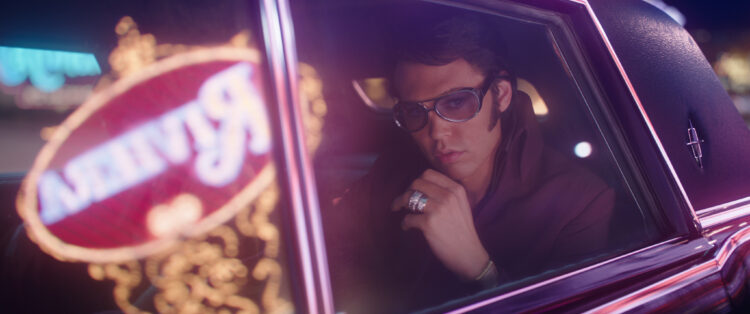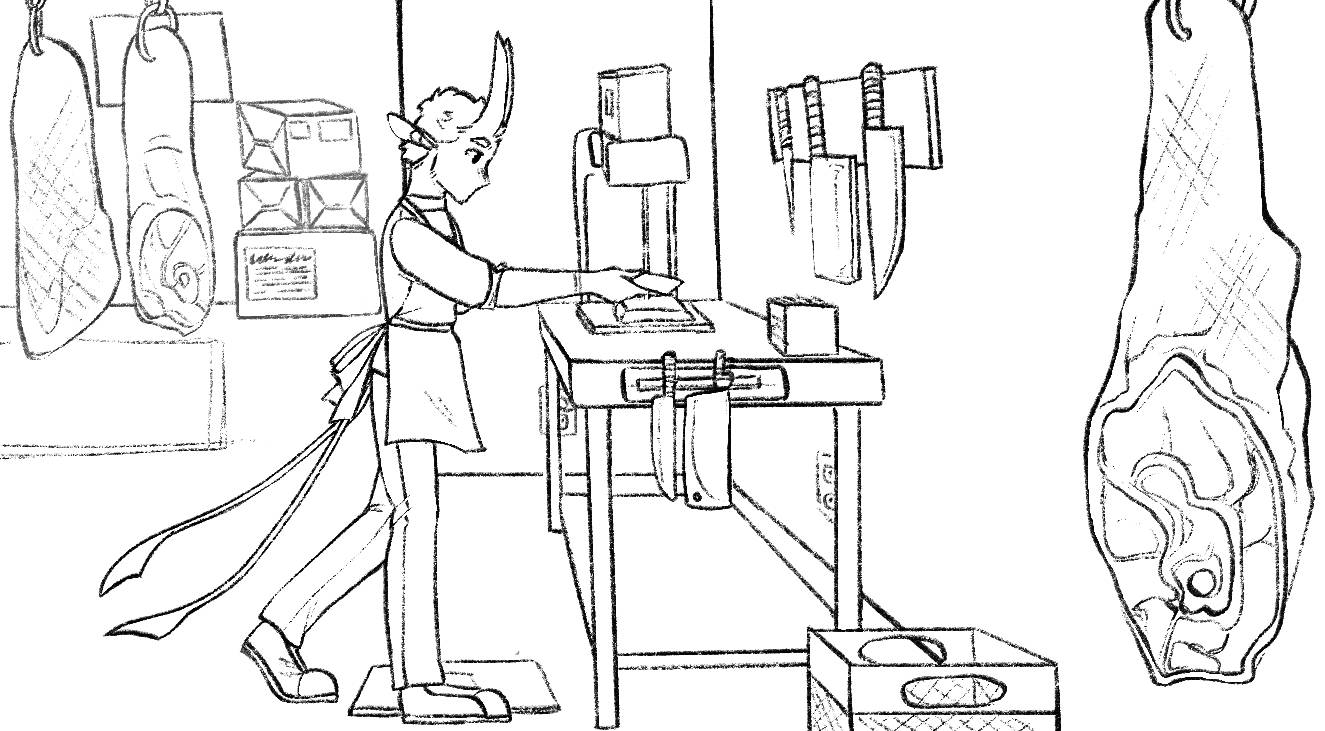
Whenever one of my old roommates would get intoxicated, inebriated, illuminated, he would make me watch the same clip of Elvis Presley. It’s Elvis’ last performance ever, and he’s singing “Unchained Melody” at his long-term residency in Las Vegas. My buddy would sing along and point out the slurring, the struggle, and the signature drawling voice.
That experience made me feel more sympathy for Elvis than the two and a half hours of Baz Luhrmann’s “Elvis.”
Baz Luhrmann’s “Elvis,” as you’d expect from the director of “Moulin Rouge,” is opulent and over-the-top. For the first 30 minutes I was racing to keep up with its frantic pace, its relentless change in time spans, its off-the-wall editing.
It was like riding a roller coaster that was going up and down at the same time, both preparing you for the next thrill and simultaneously over-bombarding the senses. For that first 30 minutes, I was thoroughly entertained. Not a single moment sank in, which was fine as long as the film kept up its frenetic pace as if it was racing Elvis Presley to the grave.
But “Elvis” collapses under its weight. Luhrmann can’t maintain the energy of its first half hour throughout its bloated 169-minute runtime.
With good pacing, strong characters, and tight editing, a three-hour film can feel like it’s under 90 minutes. “Elvis” feels like it is eight hours long.
Editors often say good editing is like music. There’s a rhythm and flow that eases the watcher in. The editing in “Elvis” is like a middle school band attempting an orchestral arrangement of “Jailhouse Rock.” Everything about it feels unintuitive. Luhrmann does have his own idiosyncratic rhythms, but I haven’t seen it get so much in the way of his storytelling.
Actors are barely given more than five seconds to emote in most scenes, before we change angle, setting, or time period. This manic pace works in the film’s first sections when we’re being introduced to Elvis’ childhood, his experiences with gospel, the first time he thrust his hips for an audience. There’s enough excitement and gyration onscreen to keep us titillated.
But when the film slows and tries to get us to connect with Elvis, it flounders. Because though the colorful graphics and blaring music fades, the sporadic shifts in camera perspective keep us at bay. Any time we’re on the verge of empathizing with Austin Butler’s Elvis, we are thrust away.
Austin Butler is good as Elvis, I assume. I don’t say that because I’m not sure about the accuracy of his impression. I say that because I barely get any uninterrupted time with him. I think his Elvis is good, from the pieces of the puzzle I can place together.
The biggest testament to Butler’s talent is his rendition of “If I Can Dream” from Elvis’ comeback special in 1968. It’s one of the only times Luhrmann lets Butler shine, escaping the shackles of the film’s editing. Unlike almost every other musical performance in the film, it rises naturally without superimposed images or hard cuts, resulting in the film’s only genuinely affecting sequence.
Every other time Butler is onstage as Elvis, Luhrmann insists on juxtaposing him against something else entirely. In the earlier songs of the film, it makes sense to show the electrifying effect Elvis has on his audience. To modern audiences, Elvis’ showmanship isn’t that transgressive. But Luhrmann wants us to know that when Elvis first hit the scene, he shocked, horrified, and aroused white America. Elvis’ performance and the audience’s reactions are a logical and engaging combination.
But as Elvis performs more, Luhrmann gets tired of the easy choices. He starts contrasting Elvis’ singing with increasingly more outlandish moments. The worst of them is a bizarre contract signing on a napkin, while Elvis croons “Suspicious Minds.” All I wanted to do was watch Butler. Instead, I’m watching Tom Hanks’ Colonel Tom Parker scribble onto a serviette with a casino boss who I don’t care about. We’re being distracted from the main stage, and it’s not particularly clear why.
The only reason I can fathom is that Luhrmann is trying to distract us from the tedium of the film’s plot. That his artistic choices are meant to obscure how bland the film’s story beats are, and how little the film is able to bring to the table in reflecting on Elvis’ life and legacy. There are moments when Luhrmann tries to make us believe Elvis possessed social consciousness, that he was aware of what he had stolen from Black American culture, that he felt guilty. But outside of the comeback special, none of that amounts to anything. None of it even rings true. It’s empty fluff, touting up a dead legend.
And I haven’t even gotten to the most egregious part of the film. America’s dad: Tom Hanks.
On principle, I don’t believe in the Razzies. Films are so hard to make, and nobody’s lifework deserves to be lampooned or derided. But Tom Hanks’ performance as Colonel Tom Parker is so bewildering that I find my morals wavering. After the first hour of the film, every time Colonel Parker appeared onscreen, I groaned, something I am not used to doing regarding Tom Hanks (and I liked “Cloud Atlas”).
Some argue that he accurately portrays the real Colonel Tom Parker. But the character, the film’s villain, is so shallow and uninteresting, that not for one moment did I care about his supposed motivations. The only thing that made me thankful for Luhrmann’s editing choices was that I never had to endure Colonel Tom Parker for very long. He is a scene-stealer, in that he drains every scene he is in of any energy. And for some reason, Luhrmann decided to make him the centerpiece of the film.
Yes. That’s right. Colonel Tom Parker is not only the film’s villain. He is also its narrator. He is the engine that keeps the narrative moving, clumsily skipping over years, regaling us with illogical aphorisms, stealing the spotlight from Elvis. Perhaps that was Luhrmann’s intention: to recreate the true story, showing today’s audiences exactly how painful it was that Colonel Tom Parker stole everything from Elvis. If that was his intention, he was successful. It is certainly painful.
Despite being a movie called “Elvis,” I left the cinema thinking that there was not enough Elvis. But the story of E.P. that I did see didn’t interest me much either. Therein lies the conundrum of Baz Luhrmann’s “Elvis.” The only thing that could lift its stale, oft-told story was Luhrmann’s interventions. But those same artistic choices end up shrouding the only parts of the story that actually work. So instead, we’re left with a frenetic yet boring, fast-paced but unengaging, brightly colored but dull bio-pic.
That said, I don’t think it’s a movie you shouldn’t watch. It’s still fun at times, though its length is borderline criminal. In fact, I think everyone should watch it. If you get enough monkeys in a room smashing on typewriters, one will end up with Shakespeare. And hopefully, with enough people watching “Elvis,” someone will be able to explain to me what Tom Hanks’ accent is supposed to be.
Now, if you don’t mind me, I’ll be watching Elvis sing “Unchained Melody” for the last time, again. It’s under four minutes, makes me feel for Elvis’ pathos, and still showcases his charm and charisma even at the end of his life. And the best part? It doesn’t cut away.
Myle Yan Tay (MFAW 2023) cares a lot about movies and comic books. One day, maybe they will care about him. Find more of his writing at www.myleyantay.com.







